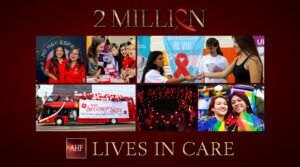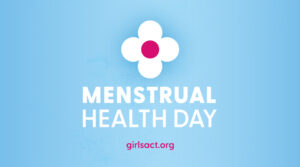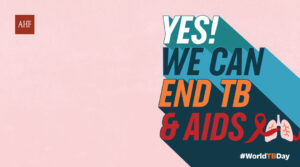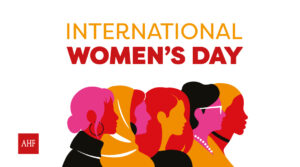Hacerse una prueba de VIH hoy es muy fácil. Atrás quedaron aquellos días en los que había que formarse en un hospital, en ayuno, dejar una muestra de sangre y esperar semanas para poder conocer el resultado.
Aun así, muchas personas siguen evitando hacerse una prueba de detección, la cual ahora sólo necesita una gota de sangre, puede aplicarse en cualquier espacio (como parques o estaciones de transporte público) y arroja un resultado confiable en 20 minutos.
De la Duda a la Acción: La Importancia de la Prueba de VIH
Puede haber muchas razones por las cuales alguien se resiste a someterse a una prueba de VIH, pero entre las principales se encuentra la idea atemorizante (y anticuada) de que el desenlace será la muerte. Y no sólo eso, sino una muerte ligada a comportamientos estigmatizados por la sociedad, como las relaciones sexuales fuera del matrimonio, las relaciones sexuales entre hombres, el uso de drogas inyectables o el trabajo sexual.
Aunque llevamos décadas diciéndolo, parece que aún no ha quedado claro que el VIH puede afectar a cualquier persona, independientemente de sus características físicas, de identidad o de estatus socioeconómico. Es por esto que es tan importante quitar poco a poco el peso que tiene un diagnóstico de este tipo, para que sea más sencillo acudir a solicitar una prueba y recibir la ayuda necesaria en caso de cualquier resultado.
Si la prueba es no reactiva (negativa para VIH), tendrás una certeza que te dará tranquilidad, y puedes aprovechar la oportunidad para comenzar un nuevo estilo de vida, donde la protección con el condón sea un pilar fundamental para tu vida sexual.
En caso de que la prueba sea reactiva (es decir, positiva para VIH), tendrás otro tipo de oportunidad: comenzar a tomar el tratamiento antirretroviral cuanto antes, lo cual ha demostrado tener un gran beneficio en el estado de salud y la expectativa de vida de las personas con VIH.
Es cierto que el resultado positivo puede ser un shock, pero es preferible despejar la duda para así poder actuar en consecuencia, sobre todo si esto te permite tomar las riendas de tu salud y tu autocuidado.
Pruebas de VIH Modernas: Rápidas y Confiables
Desde el inicio de la epidemia en los años ochenta, las personas con VIH han jugado un papel muy importante en su propia atención médica. Ya que inicialmente se asociaba a la infección con grupos ya de por sí estigmatizados en la sociedad, las personas se vieron en la necesidad de defender a toda costa su derecho a la salud, independientemente de los prejuicios que les rodeaban.
Cuando muchos profesionales médicos todavía tenían miedo de tratar a alguien con VIH, la población afectada se informó tanto como pudo acerca de la infección y comenzó a educar no sólo al personal sanitario, sino a las autoridades de salud y a la sociedad en general sobre cómo actúa el virus en el cuerpo, cuáles son las vías de transmisión y cuáles las herramientas para protegerse.
Gracias a este nivel de activismo, hoy en día existen grupos de apoyo mutuo para personas con VIH en casi todos los lugares donde haya una clínica capaz de tratar la infección. Cuando estés listo o lista para acercarte a un hospital y demandar atención médica, es muy probable que encuentres este tipo de grupos, donde te escucharán, resolverán tus dudas e incluso te ayudarán con los trámites que haya que realizar.
Desafiando Estigmas: El VIH no Discrimina
Sentir la compañía, la solidaridad y el apoyo podrían ayudarte mucho a procesar tu diagnóstico y a seguir adelante con lo que viene y es muy importante: cuidar de tu propia salud.
Comenzar el tratamiento antirretroviral cuanto antes después del diagnóstico mantendrá tu sistema inmunológico fuerte por mucho más tiempo y evitará que se presenten los estragos que, en mayor o menor medida, provoca el virus desde su entrada al organismo, los cuales pueden afectar el sistema nervioso, el corazón, los pulmones y el cerebro, entre otros órganos.
Además, debes saber que cuando el tratamiento antirretroviral tenga éxito y la cantidad de VIH en tu sangre baje hasta niveles indetectables, será imposible que lo transmitas a otras personas por la vía sexual. Este hallazgo, conocido como indetectable=intransmisible, es otro de los grandes beneficios que tiene el tratamiento contra el VIH, pues no sólo beneficia a la persona, sino también a la comunidad.
Empoderamiento en la Salud: Tratamiento Antirretroviral
Es momento de dejar de preocuparte y comenzar a ocuparte. Si crees haberte expuesto al VIH, es mejor saber. Recuerda que en AHF América Latina y el Caribe realizamos pruebas de detección gratuitas. Sólo acércate a nuestras oficinas en tu país o haz una cita hoy.





